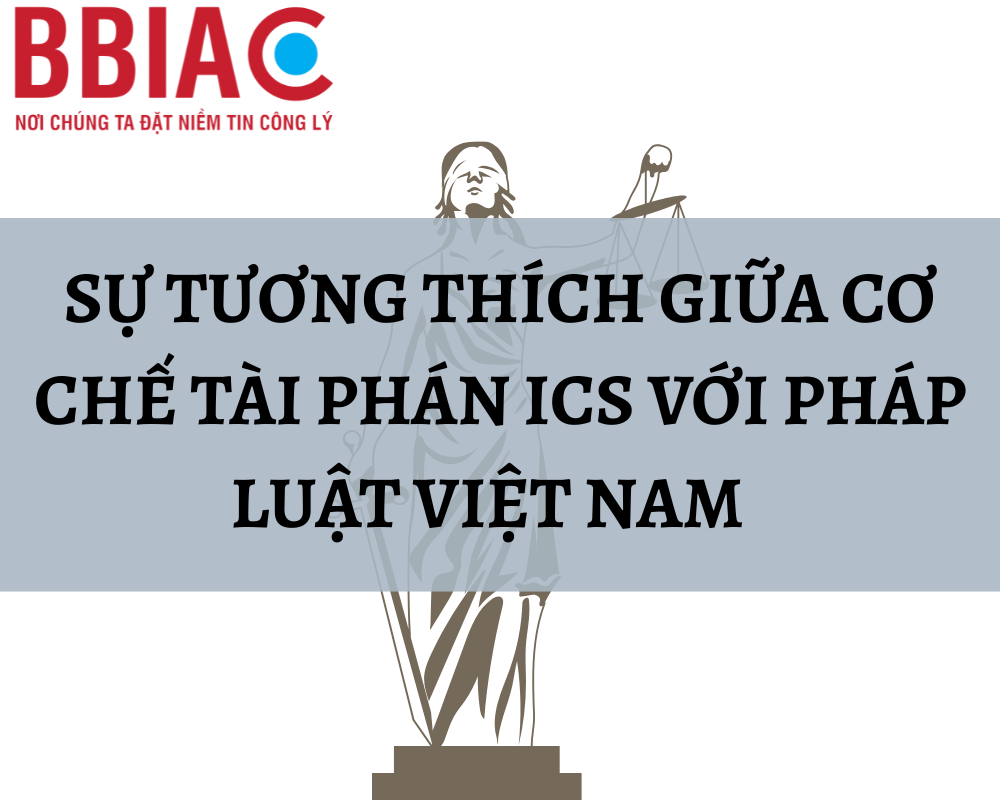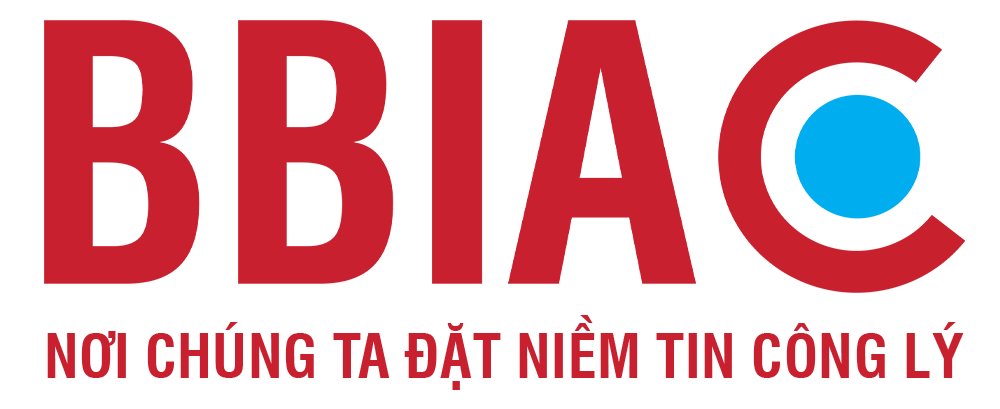The Compatibility between the ICS Adjudicative Mechanism under the EVFTA and Vietnamese Law

1. Overview of the ICS Adjudicative Body under the EVFTA
1.1. Organizational Structure of the ICS
According to the EVFTA, the Tribunal of First Instance consists of nine (9) members, and the Appeal Tribunal consists of six (6) members. One-third of the members must be nationals of Vietnam, one-third nationals of the European Union, and the remaining one-third nationals of third countries. The members shall be appointed by the Trade Committee, established under the Agreement, on the basis of mutual consent between the two Parties. Each case shall be heard by a division composed of three (3) members, maintaining the same proportional composition of nationality (Articles 12 and 13, Chapter 8, EVFTA). In the TTIP and CETA, the organizational structure of the ICS similarly includes two levels — the Tribunal of First Instance and the Appeal Tribunal — with the same ratio of membership as under the EVFTA, differing only in the number of members.
The ICS sets high standards of professional competence and ethics that must be met and maintained by members representing both Vietnam and the EU. The EVFTA provides that: “Members of the Tribunal shall possess the qualifications required in their respective countries for appointment to judicial office, or be jurists of recognized competence.” (Article 12, Chapter 8, EVFTA).
1.2. Decisions of the ICS
ICS is a permanent dispute settlement mechanism, consisting of two levels (First Instance and Appeal). When hearing a case, the Tribunal has the authority to require the respondent to pay damages or return property, based on the EVFTA, international law, and domestic law, applied only to the facts of the case. A provisional award is issued after 18 months. This award becomes a final award if no appeal is filed within 90 days, or after being reviewed by the Appeal Tribunal (with a maximum timeframe of 270 days).
1.3. Enforcement of ICS Decisions
The final award of the ICS is conclusive and binding, and the signatory parties must recognize and enforce it as a judgment of their own national court. However, during the first five years from the entry into force of the EVFTA, enforcement in Vietnam is governed by the 1958 New York Convention (NYC). After five years, the award will have absolute binding effect, cannot be appealed or annulled, and must be enforced as if it were a final judgment of a Vietnamese court (Article 31, Chapter 8, EVFTA). Vietnam has only five years to complete its legal framework, and the current challenge is that Vietnamese courts can easily refuse enforcement of foreign arbitral awards based on the vague ground of “fundamental principles of Vietnamese law” (Article 68, Law on Commercial Arbitration 2010), rather than the “public policy” standard under the NYC, and the current situation reverses the burden of proof.
2. Assessment of the Compatibility between ICS Provisions under the EVFTA and Vietnamese Law
2.1. Current Legal Framework in Vietnam
In practice, the recognition and enforcement of foreign arbitral awards in Vietnam still face several limitations. Arbitration activities and the recognition of foreign arbitral awards in Vietnam are primarily governed by:
- Law on Commercial Arbitration 2010 (LCA 2010);
- Civil Procedure Code 2015;
- 1958 New York Convention (NYC): Vietnam has been a party to this Convention since 1995, which governs the recognition and enforcement of foreign arbitral awards;
- Resolution No. 01/2014/NQ-HĐTP providing guidance on the implementation of certain provisions of the Law.
2.2. Practice of Recognition and Enforcement of International Arbitral Awards in Vietnam
In the context of increasingly deep and extensive international trade and investment activities, arbitration has been both chosen and encouraged as a method of dispute resolution. The Law on Commercial Arbitration 2010 (LCA 2010) and Resolution No. 01/2014/NQ-HĐTP of the Council of Judges of the Supreme People’s Court provide guidance on the implementation of certain provisions of the LCA, establishing a regulatory framework to promote the development of arbitration centers in Vietnam.
However, arbitration is increasingly chosen not primarily for procedural efficiency but because European investors are concerned about the difficulty of having foreign arbitral awards recognized and enforced through Vietnamese courts, due to the following reasons:
First, the LCA 2010 allows Vietnamese courts to refuse the enforcement of foreign arbitral awards if the award violates the “fundamental principles of Vietnamese law” (Article 68, LCA 2010); however, there is currently no legal text specifying what constitutes these fundamental principles.
Second, another important issue is the reversal of the burden of proof. Under the 1958 New York Convention, if the party required to comply with the award (award debtor) wishes to challenge enforcement of a foreign arbitral award, that party must provide evidence to justify its objection. In Vietnam, by contrast, the party seeking enforcement must provide evidence to rebut the objection of the opposing party (Article 35, LCA 2010).
3. Conclusion – Recommendations
To prepare for the enforcement of the Investment Court System (ICS) under the EVFTA, it is essential for Vietnam to domesticate its ISDS-related commitments into the domestic legal framework, as currently Vietnamese law does not contain provisions for a permanent Investor–State Dispute Settlement (ISDS) mechanism similar to ICS. In addition, Vietnam needs to conduct a comprehensive review of the existing legal framework, including the Law on Commercial Arbitration 2010, the Civil Procedure Code 2015, and the Law on Investment, to assess compatibility and feasibility for implementing the ICS mechanism and to prepare for future multilateral dispute settlement mechanisms.
Legal provisions should be perfected to ensure proper compliance with the 1958 New York Convention during the five-year transitional period, when the recognition and enforcement of ICS awards will still be governed by this Convention. In particular, inconsistencies with the New York Convention need to be addressed, specifically by replacing the ground for refusing enforcement from “fundamental principles of Vietnamese law”, as assessment based on public policy would be far more feasible and consistent than evaluating violations of fundamental principles of the national legal system.
In terms of organization and resources, close coordination among relevant authorities is required, particularly between the Ministry of Justice and the Ministry of Planning and Investment (MPI), to establish and maintain a stable and effective adjudicative system. The Ministry of Justice should work with the MPI to identify, train, and nominate judges and experts with the highest competence and experience in foreign investment disputes for appointment as members of the ICS Tribunal.
It is also necessary to enhance the capacity of human resources in the field of international investment dispute resolution, including organizing specialized training programs on the recognition and enforcement of foreign arbitral awards for judges at both provincial and appellate levels.
4. Mechanisms for Resolving Disputes through the Bigboss International Arbitration Center (BBIAC)
To resolve a dispute through commercial arbitration at BBIAC, clients may insert one of the following two clauses into their contracts:
4.1. Model Arbitration Clause
“Any dispute arising out of or in connection with this contract shall be settled by arbitration at the BIGBOSS International Commercial Arbitration Center (BBIAC) in accordance with the Arbitration Rules of Procedure of this Center.”
Additionally, the parties may supplement the clause with:
(a) The number of arbitrators shall be [one or three].
(b) The seat of arbitration shall be [city and/or country].
(c) The governing law of the contract shall be [ ].*
(d) The language of the arbitration shall be [ ].**
Notes:
* Applicable only to disputes involving a foreign element.
** Applicable only to disputes involving a foreign element or disputes where at least one party is an enterprise with foreign invested capital.
4.2. Model Arbitration Clause Applicable to Expedited Procedure
“Any dispute arising out of or in connection with this contract shall be settled by arbitration at the BIGBOSS International Commercial Arbitration Center (BBIAC) in accordance with the Arbitration Rules of Procedure of this Center. The Parties agree that the arbitration proceedings shall be conducted under the Expedited Procedure stipulated in Article 37 of the BBIAC Arbitration Rules of Procedure.”
Additionally, the parties may supplement the clause with:
(a) The seat of arbitration shall be [city and/or country].
(b) The governing law of the contract shall be [ ].*
(c) The language of the arbitration shall be [ ].**
Notes:
* Applicable only to disputes involving a foreign element.
** Applicable only to disputes involving a foreign element or disputes where at least one party is an enterprise with foreign invested capital.
Contact 0979 133 955 for consultation!
